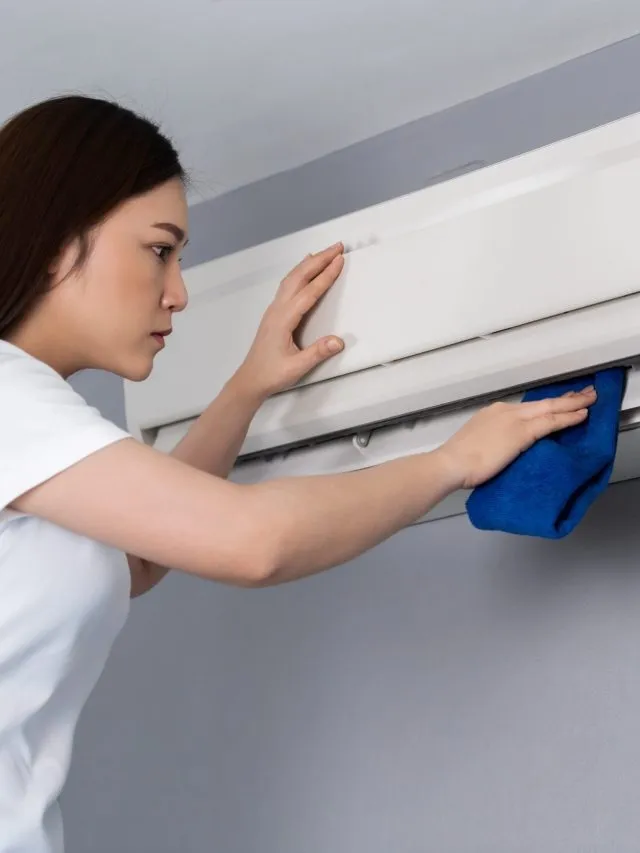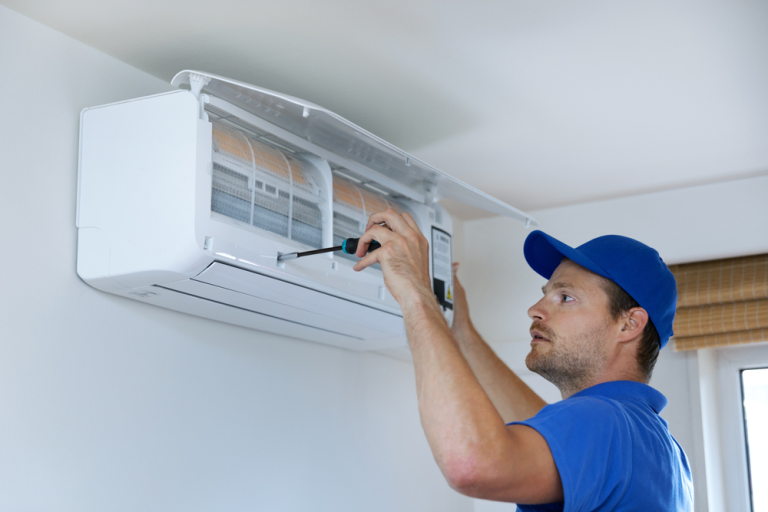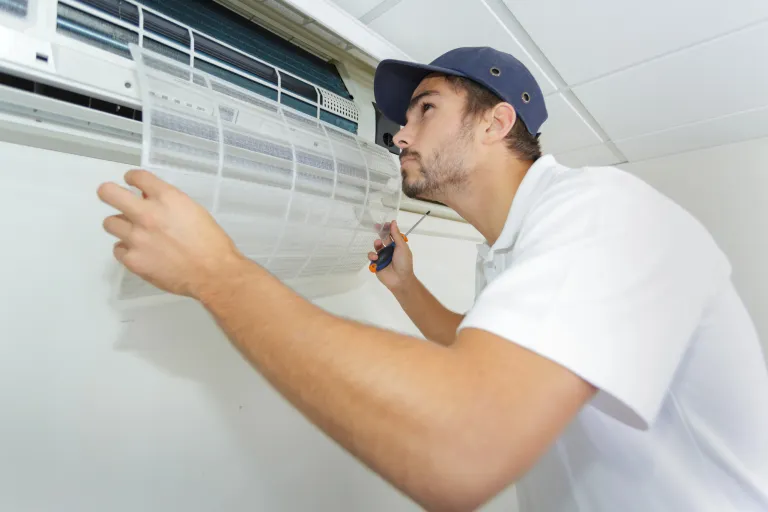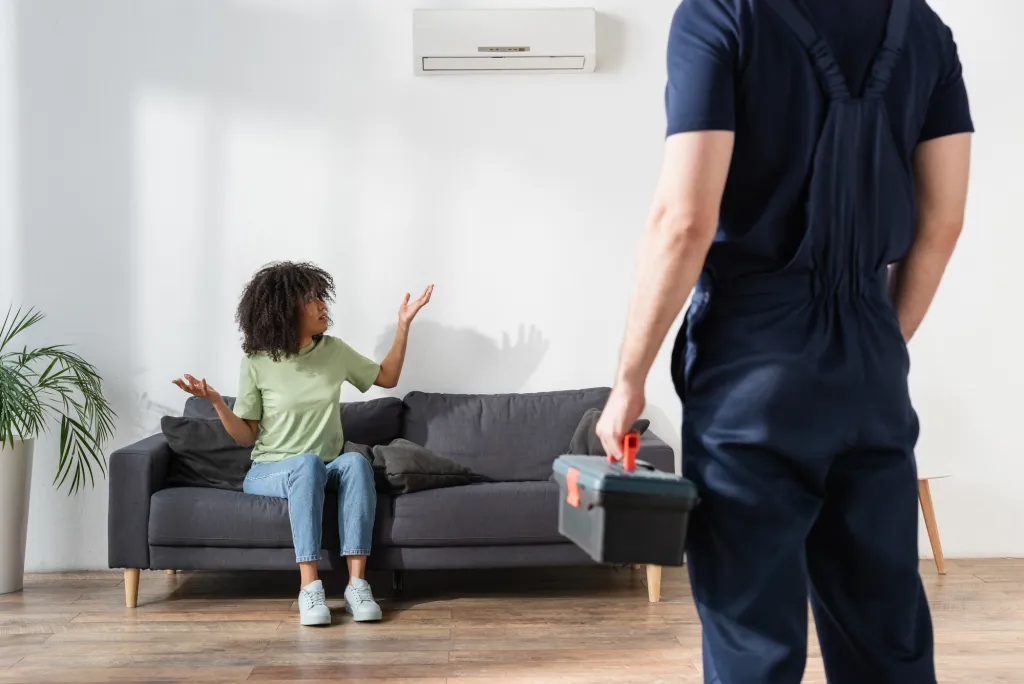Why Is My Air Con Not Cooling? Solutions That Work
A typical air conditioning system should last 9 to 10 years, but poor cooling performance can greatly significantly reduce its lifespan. Simple maintenance oversights create many cooling problems. Dirty filters force your unit to work harder and deliver poor performance.
Clogged filters, refrigerant leaks, and electrical problems commonly prevent air conditioning systems from working correctly in Ipswich and nearby areas. Your system’s warning signs—from hissing noises to ice buildup—appear before failure. This article will help you spot the root cause and find practical solutions to restore your comfort, whether you have a split system or ducted air conditioning that’s not cooling correctly.
Common Signs Your Air Con Isn’t Cooling Properly

Knowing how your air conditioning should work can help you spot potential issues early. A well-functioning air conditioner keeps your space at a steady temperature with minimal noise and regular on-off cycles.
Understanding normal vs abnormal operation
Your air conditioning system should cool rooms about 8°C below the outside temperature. During regular operation, you’ll notice steady airflow from all vents and hear a gentle hum.
Key warning signs to watch for
These signs in your air conditioning system point to possible problems:
- Weak or uneven airflow can cut cooling capacity by 4.5% for every 20% drop in airflow
- Strange noises like screeching, grinding, or bubbling sounds
- Moisture buildup or leaks around the unit
- Bad smells that might mean mould or electrical problems
- Different temperatures between rooms
Impact on energy consumption
Faulty air conditioning systems drive up energy bills. Studies show that common problems, such as wrong refrigerant levels and airflow issues, can increase energy usage by up to 9%.
Refrigerant-related problems are common in Ipswich homes and can reduce system efficiency by up to 26.2%. Quick, professional maintenance can help avoid high energy use and expensive utility bills.
A struggling system works harder than it should, which leads to more wear and a shorter lifespan. Dirty philtres or coils can reduce cooling power by 2.9%, and your system will have trouble keeping rooms comfortable.
Quick DIY Troubleshooting Steps
Safety should be your top priority before trying DIY fixes for your air conditioner, not cooling problems.
Simple safety checks before starting
- Turn off the power at the circuit breaker
- Wear appropriate protective gear (gloves, safety goggles)
- Ensure proper ventilation in the work area
- Keep a voltage tester handy
- Clear the area around your unit
Simple maintenance checks
Start with the thermostat: Ensure it’s set to “cool” mode and check the appropriate temperature setting. Your philtres need attention next – a task that can improve your air conditioning efficiency by 5-15%.
Your air conditioning needs outdoor unit maintenance. Remove debris within a two-foot radius around the unit. Gently clean the condenser coils with a garden hose, spraying at the correct angle to avoid damage.
Signs you need professional help
Your air conditioning system needs professional attention if you notice:
- Electrical issues or burning smells
- Refrigerant leaks or unusual hissing sounds
- Ice formation on the evaporator coils
- Strange grinding or screeching noises
- Water pooling around the unit
DIY repairs beyond simple maintenance could further void your warranty or damage your air conditioning system. If your cooling issues persist after these simple checks, your best option is to contact a qualified Ipswich air conditioning technician.
Major Cooling Issues and Their Solutions

Correctly diagnosing your air conditioning system’s major cooling problems is essential for finding the right solution. Your AC unit’s cooling issues usually fall into three main categories.
Refrigerant-related problems
Low refrigerant levels or leaks can severely reduce your system’s cooling capacity. Here are the warning signs to watch for:
- Hissing sounds that suggest refrigerant leaks
- Ice formation on copper lines
- Longer cooling cycles
- Higher energy bills
Refrigerant leaks can reduce your system’s efficiency by up to 26.2%. You should add more refrigerant yourself, but this task needs professional expertise. Improper handling damages both your system and the environment.
Electrical system failures
Ipswich homeowners’ air conditioning systems often develop electrical issues due to frequent on-off cycling and wire corrosion. A faulty capacitor prevents the AC from blowing cold air and forces it to work harder, which can damage the compressor.
Damaged wiring creates serious safety risks. If you smell burning or the circuit breaker trips repeatedly, cut the power immediately and call a qualified technician.
Mechanical component issues
Your split system’s cooling problems could point to mechanical issues with the compressor or fan motors. The compressor, your system’s heart, can fail because of:
- Insufficient refrigerant
- Electrical control failure
- Excessive pressure from overcharging
Regular maintenance helps prevent cooling issues in Ipswich’s climate. Professional inspections can spot potential mechanical failures before your system breaks down completely. DIY repairs on mechanical components will void your warranty and might cause more damage.
Cost-Effective Professional Solutions

You need a professional diagnosis to fix your air conditioner when it stops cooling. Ipswich residents should know the service costs before deciding about their air conditioning systems.
Diagnostic service options
Your air conditioning system will need assessment at some point. Here are the typical service costs:
- Standard Split System Assessment: From $350.14
- Ducted System Assessment: From $460
- Multi-head System Assessment: From $380
These assessments give you a complete picture of your system’s health. Technicians test electronic components, thermostats, gas pressures, and fan motors. Professional diagnosis accurately identifies problems, which is better than trying DIY repairs.
Repair vs replacement considerations
Your air conditioner’s repair costs should guide your decision to fix or replace it. Repairs that cost more than 50% of a new unit suggest replacement might be your best option. Compared to newer models, systems over 10 years old could cost you 20% more in energy bills.
New air conditioning units offer several advantages:
- Better energy efficiency ratings
- Superior temperature control
- Advanced diagnostic features
- Stronger warranty coverage
Warranty and insurance implications
Manufacturing defects fall under your warranty’s protection. However, your warranty won’t cover damage from:
- Blocked filters and drains
- External impact damage
- Pest-related problems
- Power surge damage
Adding fusion or motor burnout coverage to your insurance policy can protect your investment. This coverage helps if your compressor fails unexpectedly. Regular professional servicing will keep your warranty valid throughout its term.
Conclusion
Your air conditioning system’s maintenance doesn’t have to be complicated. Regular philtre cleaning and professional inspections can prevent most cooling problems. You can save money and extend your unit’s life by watching for warning signs instead of waiting for complete system failure.
While simple maintenance is something you can handle yourself, complex problems require professional help. Your AC system is a significant investment that, with proper care, will provide reliable cooling throughout Ipswich’s warm seasons.
Quick action prevents more significant problems, whether you face minor efficiency drops or major cooling failures. Your home will stay comfortable year-round when you schedule regular maintenance checks, get prompt repairs, and upgrade your system at the right time..



